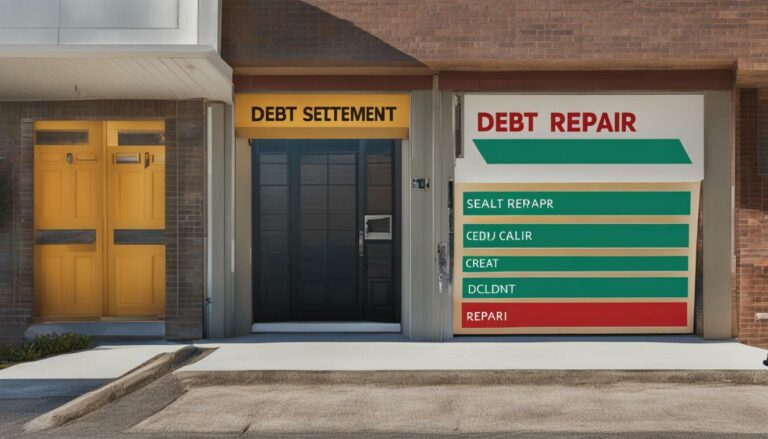Does a Chapter 13 Trustee Monitor Your Credit Report? Find Out!

If you’re considering filing for Chapter 13 bankruptcy, you might be wondering if the Chapter 13 Trustee will be monitoring your credit report throughout the process. In this article, we’ll explore the role of a Chapter 13 Trustee and their involvement in credit report monitoring. We’ll also provide insights into how bankruptcy can affect your creditworthiness and offer guidance on communication with the trustee.
Key Takeaways:
- The Chapter 13 Trustee’s main role is to oversee the administration of the bankruptcy plan and distribute funds to creditors.
- The trustee does not continuously monitor your credit report but may request bank statements for further verification if needed.
- Credit reporting agencies obtain information about bankruptcy cases through public records.
- Bankruptcy filings can stay on your credit report for up to 10 years.
- It is advisable to communicate with the Chapter 13 Trustee through your attorney. They will guide you and address any concerns you may have.
What Does a Chapter 13 Trustee Do?
Before we explore whether a Chapter 13 Trustee monitors credit reports, it’s important to understand what exactly their role entails. In a Chapter 13 bankruptcy, a trustee is appointed to oversee the administration of the plan. Their primary responsibility is to ensure the integrity and efficiency of the bankruptcy process while ensuring fair treatment to all parties involved.
The Chapter 13 Trustee plays a crucial role in the repayment plan by collecting and distributing funds to creditors according to the approved plan. They review the debtor’s financial information and work with the bankruptcy court to determine the feasibility of the proposed plan. Once the plan is confirmed, the trustee monitors the debtor’s compliance with the plan, ensuring regular payments are made and any changes are approved by the court.
While it is a myth that the trustee continuously monitors bank accounts throughout the payment plan, they may request to see bank statements for further verification if necessary. This is done to ensure that the debtor is adhering to the terms of the plan and making payments as required. However, it’s important to note that the trustee’s role primarily revolves around overseeing the administration of the bankruptcy plan rather than actively monitoring individual credit reports.
It’s also worth mentioning that the Chapter 13 Trustee does not have direct control over credit bureaus. However, information regarding bankruptcy cases, including Chapter 13 filings, is available to credit bureaus through public records. This means that a bankruptcy filing can stay on a credit report for up to 10 years, potentially impacting the individual’s creditworthiness and ability to obtain credit in the future.
🚨 TUIC Errors + Low Credit Score?
CreditScoreIQ helps you build credit faster by reporting utility bills to all 3 bureaus—while you dispute errors.
Start Building Credit Today →| Key Points: |
|---|
|
If you have questions about a Chapter 13 bankruptcy filing or need assistance, it is recommended to consult with a trusted bankruptcy attorney. They can provide guidance and help navigate the complex bankruptcy process, ensuring that you understand your rights and obligations.
How Credit Reporting Agencies Obtain Information about Bankruptcy Cases
Credit reporting agencies play a vital role in gathering information about bankruptcy cases and including them in credit reports. These agencies, such as Equifax, Experian, and TransUnion, obtain information through public records and court filings. When a bankruptcy case is filed, it becomes a matter of public record, and credit reporting agencies have access to this information.
Once the credit reporting agencies receive notification of a bankruptcy filing, they update the individual’s credit report accordingly. This includes listing the type of bankruptcy filed (such as Chapter 13), the filing date, and the overall status of the case. It’s important to note that the accuracy and completeness of the information provided to credit reporting agencies is crucial, as it directly impacts an individual’s credit score and financial standing.
“Credit reporting agencies play a vital role in providing accurate and up-to-date credit information, including bankruptcy filings, to lenders and other financial institutions. This information helps lenders assess creditworthiness and make informed decisions.”
It is worth mentioning that credit reporting agencies do not actively monitor individual bankruptcy cases beyond updating their credit reports when notified of a filing. They rely on accurate and timely information provided by the bankruptcy courts and trustees. Therefore, it is crucial for individuals to ensure the completeness and accuracy of their bankruptcy filings to avoid any potential discrepancies in their credit reports.
| Key Points |
|---|
| Credit reporting agencies gather bankruptcy information through public records and court filings. |
| Bankruptcy filings become a matter of public record and are accessible to credit reporting agencies. |
| Accurate and timely information is crucial for maintaining the integrity of credit reports. |
In summary, credit reporting agencies obtain information about bankruptcy cases from public records and court filings. They play a significant role in providing accurate credit information to lenders and financial institutions. It is essential for individuals going through bankruptcy to ensure the completeness and accuracy of their filings to maintain the integrity of their credit reports.
Does the Chapter 13 Trustee Directly Control Credit Reports?
Although the Chapter 13 Trustee doesn’t have direct control over credit reports, their involvement in bankruptcy cases can impact the information included in your credit report. As a trustee oversees the administration of your Chapter 13 bankruptcy plan, they play a significant role in ensuring the integrity and efficiency of the process, including the distribution of funds to creditors. While it is a common misconception that the trustee continuously monitors your credit report, their actions during the bankruptcy process can have an indirect effect on your creditworthiness.
It is important to note that the Chapter 13 Trustee does not have direct control over credit reporting agencies. However, information about bankruptcy cases, including Chapter 13 filings, is accessible to credit reporting agencies through public records. This means that when you file for bankruptcy, it becomes a matter of public record, and credit reporting agencies can include this information in your credit report. This inclusion can have a significant impact on your credit score and creditworthiness.
It’s essential to understand that a bankruptcy filing can stay on your credit report for up to 10 years, which can affect your ability to obtain credit or secure favorable terms. Credit reporting agencies rely on accurate information to compile credit reports, and the involvement of a Chapter 13 Trustee in bankruptcy cases can influence the accuracy of the information they include. Therefore, it is crucial to work closely with your bankruptcy attorney to ensure that all necessary documentation and information provided to the trustee are accurate and complete.
| Key Points: | Chapter 13 Trustee and Credit Reports |
|---|---|
| 1. | The Chapter 13 Trustee does not directly control credit reports. |
| 2. | Bankruptcy cases, including Chapter 13 filings, are accessible to credit reporting agencies through public records. |
| 3. | A bankruptcy filing can stay on a credit report for up to 10 years. |
| 4. | Accuracy of information provided to the Chapter 13 Trustee can impact the information included in your credit report. |
When navigating the bankruptcy process, it is not advisable to contact the Chapter 13 Trustee directly regarding your credit report. Communication should be conducted through your bankruptcy attorney, who can provide guidance and address any concerns you may have. They can also help ensure that the necessary steps are taken to protect your interests and maintain the accuracy of your credit report throughout the bankruptcy process.
Consulting with a trusted bankruptcy attorney is highly recommended if you have questions about a bankruptcy filing or need assistance with your financial situation. They can provide personalized advice and help you make informed decisions to rebuild your creditworthiness after bankruptcy.
How Long Does Bankruptcy Stay on Your Credit Report?
It’s important to understand how long a bankruptcy filing can have an impact on your credit report and overall creditworthiness. A bankruptcy can stay on your credit report for up to 10 years, depending on the type of bankruptcy filed. This extended reporting period can make it challenging to obtain new credit or secure favorable loan terms in the future.
During this time, it’s crucial to maintain accurate credit reports and ensure that your bankruptcy filing is correctly reflected. Any errors or discrepancies can further hinder your creditworthiness and financial standing. Monitoring your credit reports regularly can help you identify and address any inaccuracies promptly.
Bankruptcy and Your Creditworthiness
While bankruptcy can have a significant impact on your credit report, it doesn’t necessarily mean that you won’t be able to rebuild your credit and improve your creditworthiness over time. By establishing responsible financial habits and demonstrating good credit behavior, such as making timely payments and keeping credit utilization low, you can work towards restoring your credit.
However, it’s essential to note that bankruptcy will remain on your credit report for the specified period, even as you work towards rebuilding your credit. Lenders and creditors may still consider your bankruptcy history when making decisions about extending credit or granting loans. It’s advisable to consult with a trusted bankruptcy attorney or credit counselor to develop a strategy for rebuilding your credit and managing your financial future.
| Key Points: |
|---|
| A bankruptcy filing can stay on your credit report for up to 10 years. |
| Monitoring your credit reports regularly is essential to ensure accuracy. |
| Bankruptcy does not mean you cannot rebuild your creditworthiness. |
| Consulting a bankruptcy attorney or credit counselor can help guide you in developing a credit rebuilding strategy. |
Understanding the duration of a bankruptcy’s impact on your credit report is vital for managing your financial future. By staying informed, monitoring your credit reports, and seeking professional advice, you can take steps towards rebuilding your creditworthiness and achieving your financial goals.
Can You Contact the Chapter 13 Trustee About Your Credit Report?
If you have questions or concerns about your credit report during Chapter 13 bankruptcy, it’s essential to understand the appropriate channels for communication with the trustee. While the trustee plays a crucial role in overseeing the administration of your bankruptcy plan, it is generally not advisable to contact them directly regarding your credit report. Instead, it is recommended to communicate through your attorney, who can navigate the complexities of the bankruptcy process on your behalf.
During Chapter 13 bankruptcy, the trustee’s primary responsibility is to ensure the integrity and efficiency of your payment plan, as well as to distribute funds to your creditors. While they do not have direct control over credit bureaus, it’s important to understand that information regarding bankruptcy cases, including Chapter 13 filings, is available to credit bureaus through public records. This means that any changes or updates to your bankruptcy status will be reflected in your credit report.
If you have specific concerns about the accuracy of your credit report or any issues related to your bankruptcy filing, your attorney can help address them. They can review your credit report, ensure that all necessary information is accurately reported, and guide you through any necessary steps to correct inaccuracies. Your attorney will have the expertise and knowledge to navigate the bankruptcy process and provide you with the necessary guidance and support.
Remember, seeking professional advice from a trusted bankruptcy attorney is crucial when dealing with the complexities of Chapter 13 bankruptcy. They can help you understand your rights and responsibilities, guide you through the communication process with the trustee and credit bureaus, and provide you with the necessary resources to maintain accurate credit reports and ultimately rebuild your creditworthiness.
| Key Points: |
|---|
| The Chapter 13 Trustee oversees the administration of your bankruptcy plan but does not directly control your credit report. |
| Information regarding bankruptcy cases, including Chapter 13 filings, is accessible to credit bureaus through public records. |
| Contacting the trustee directly about your credit report is not advisable; communication should be done through your attorney. |
| Consulting with a trusted bankruptcy attorney is recommended for any questions or concerns regarding your credit report during Chapter 13 bankruptcy. |
Conclusion
Understanding the role of the Chapter 13 Trustee in relation to your credit report is crucial for managing your financial situation during and after bankruptcy. While the Chapter 13 Trustee does not directly control credit reports, they play a significant role in overseeing the administration of your bankruptcy plan.
It is important to note that the Chapter 13 Trustee’s primary responsibility is to ensure the integrity and efficiency of the bankruptcy process. They distribute funds to creditors based on a court-approved repayment plan, aiming to help you repay your debts and regain financial stability.
Although the Chapter 13 Trustee does not continuously monitor your bank accounts throughout the payment plan, they may request bank statements or other documents to verify the accuracy of the information provided. However, it is not advisable to contact the Chapter 13 Trustee directly regarding your credit report. Instead, communication should be conducted through your attorney, who can provide guidance and address any concerns you may have.
A Chapter 13 bankruptcy filing can have a significant impact on your credit report. The information about your bankruptcy case is accessible to credit reporting agencies through public records. As a result, a bankruptcy filing can remain on your credit report for up to 10 years, potentially affecting your creditworthiness and financial opportunities.
If you have questions about a bankruptcy filing or need assistance managing your financial situation, it is crucial to consult with a trusted bankruptcy attorney. They can offer valuable advice, help you understand the implications of bankruptcy on your credit report, and guide you through the process of rebuilding your credit and maintaining financial stability in the long run.
FAQ
Does a Chapter 13 Trustee Monitor Your Credit Report?
No, a Chapter 13 Trustee does not continuously monitor your credit report. However, information about bankruptcy cases is available to credit reporting agencies through public records, so they may be aware of your bankruptcy filing.
What Does a Chapter 13 Trustee Do?
A Chapter 13 Trustee is appointed to oversee the administration of a Chapter 13 bankruptcy plan. Their role is to ensure integrity and efficiency in the process and to distribute funds to creditors according to the plan.
How Credit Reporting Agencies Obtain Information about Bankruptcy Cases
Credit reporting agencies obtain information about bankruptcy cases, including Chapter 13 filings, through public records. This information is then reflected in your credit report and can impact your credit score.
Does the Chapter 13 Trustee Directly Control Credit Reports?
No, the Chapter 13 Trustee does not have direct control over credit reports. However, their bankruptcy filings are accessible by credit reporting agencies through public records, which may affect the accuracy of your credit report.
How Long Does Bankruptcy Stay on Your Credit Report?
A bankruptcy filing, including Chapter 13, can stay on your credit report for up to 10 years. This can have a significant impact on your creditworthiness and may affect your ability to obtain credit in the future.
Can You Contact the Chapter 13 Trustee About Your Credit Report?
It is not advisable to contact the Chapter 13 Trustee directly about your credit report. Communication regarding your bankruptcy should be done through your attorney, who can provide guidance and address any concerns you may have about your credit report.
Source Links
- https://www.moeb.uscourts.gov/faq-credit-reporting-and-bankruptcy-court
- https://acclaimlegalservices.com/bankruptcy/chapter-13/trustee.html
- https://www.clevelandsbankruptcyattorney.com/trustees-monitor-income-chapter-13/
Ready to Improve Your Credit?
Disputing TUIC errors is step one. Step two? Boost your score by reporting utility payments with CreditScoreIQ.
Get Started Now (Only $1 Trial) →3-bureau reporting • $1M identity insurance • Dark web monitoring





